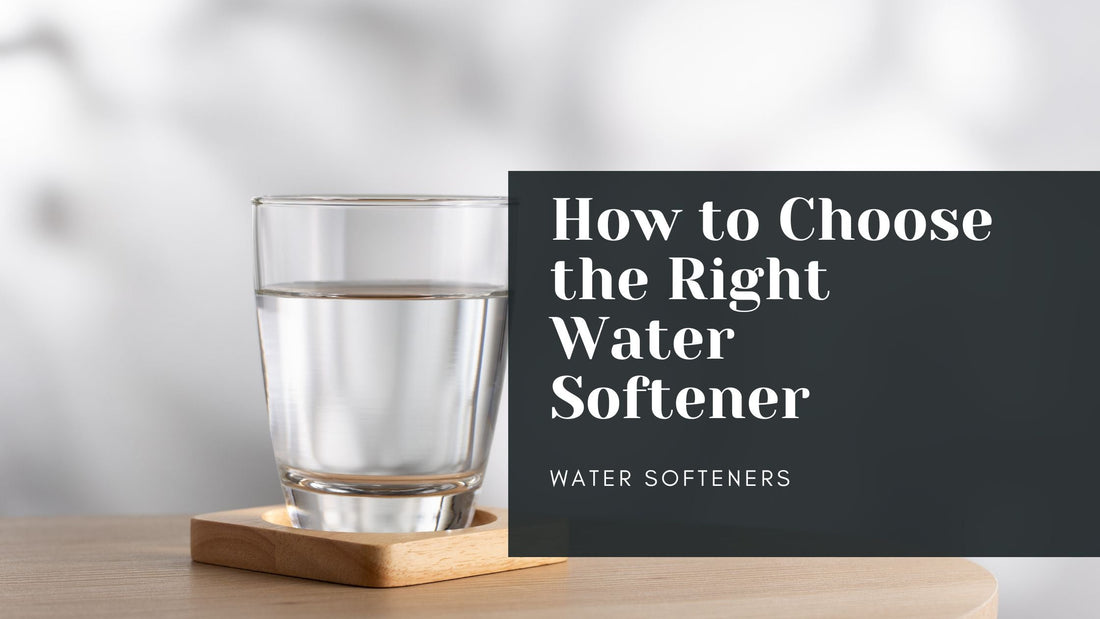Hard water is a silent nuisance in many homes—clogging pipes, reducing appliance lifespan, and leaving unsightly spots on dishes and fixtures. If your household is feeling the effects, investing in a reliable water softener can be a game-changer. But with so many types and sizes on the market, how do you know which one is right for your family?
This guide will walk you through the essential factors to consider when choosing a water softener based on your household size and needs.
Why Water Softeners Matter
Water softeners remove excess minerals—mainly calcium and magnesium—from hard water, preventing scale buildup and extending the life of plumbing and appliances. Whether you’re dealing with minor inconvenience or serious limescale issues, a well-sized water softener can make a dramatic difference.
Step 1: Understand Your Household Water Usage
The number of people in your home directly affects how much water you use. On average:
-
One person uses about 75–100 gallons of water per day.
-
A family of four may use 300–400 gallons per day.
You also need to know the hardness level of your water (measured in grains per gallon or ppm). A home water test kit or professional water analysis can provide this figure.
Multiply your daily usage by the hardness level to get your total daily grain requirement.
For example:
A household of 4 with water hardness of 15 grains per gallon:
→ 400 gallons × 15 = 6,000 grains per day
Choose a unit that can handle your weekly or bi-weekly regeneration needs without overworking the system.
Step 2: Match the Softener Capacity to Your Needs
Water softener systems come in various capacities, usually measured in grains:
-
24,000 grains: Ideal for 1–2 people
-
32,000 grains: Best for 3–4 people
-
48,000–64,000 grains: Suitable for 5+ people
A family of six will require a larger capacity than a single person living alone. For example, a full house water softener designed for larger households can support greater flow rates and regeneration cycles.
Step 3: Consider the Type of Water Softener
There are several types of systems to consider:
-
Salt-Based Ion Exchange Softeners: Traditional and highly effective.
-
Salt-Free Softeners: Use alternative technologies to reduce scaling.
-
Dual-Tank Softeners: Best for large households with high water usage.
-
Portable or Compact Systems: Ideal for smaller spaces like apartments or mobile homes.
If you live in a compact space, such as a mobile home, a water softener for mobile home or water softener systems for mobile homes is designed to provide efficient softening without taking up much room.
On the other hand, an undercounter water softener can be tucked away under a sink or cabinet—perfect for smaller families or single users in urban areas.
Step 4: Factor in Regeneration Style
Water softeners regenerate in different ways:
-
Timer-Based: Regenerate on a set schedule.
-
Meter-Based: Regenerate based on actual water usage (more efficient).
-
Manual Regeneration: Best for people who want full control, though less convenient.
For busy households, a meter-based system in your water softening units is typically more practical.
Step 5: Installation and Maintenance
Make sure to assess whether you'll need professional installation or can manage a DIY setup. Regular maintenance, such as checking salt levels and cleaning the brine tank, is also essential for keeping your system running smoothly.
If you’re in Ireland, there are many local providers offering water softener Ireland solutions that include installation, servicing, and aftercare support.
Step 6: Think Long-Term Value
Don’t just focus on the initial price. Consider:
-
Efficiency and regeneration frequency
-
Warranty and support
-
Availability of replacement parts
-
Energy consumption
Higher-capacity systems may cost more upfront but save on maintenance and energy over time.
Final Thoughts
Choosing the right water softener is about more than just size—it's about matching your household's needs with the right technology and setup. Whether you're looking for a full house water softener for a large family, or a space-saving undercounter water softener for an apartment, there's a solution that fits.
Use this guide to evaluate your water usage, space, and lifestyle, and you'll be well on your way to soft, scale-free water.

